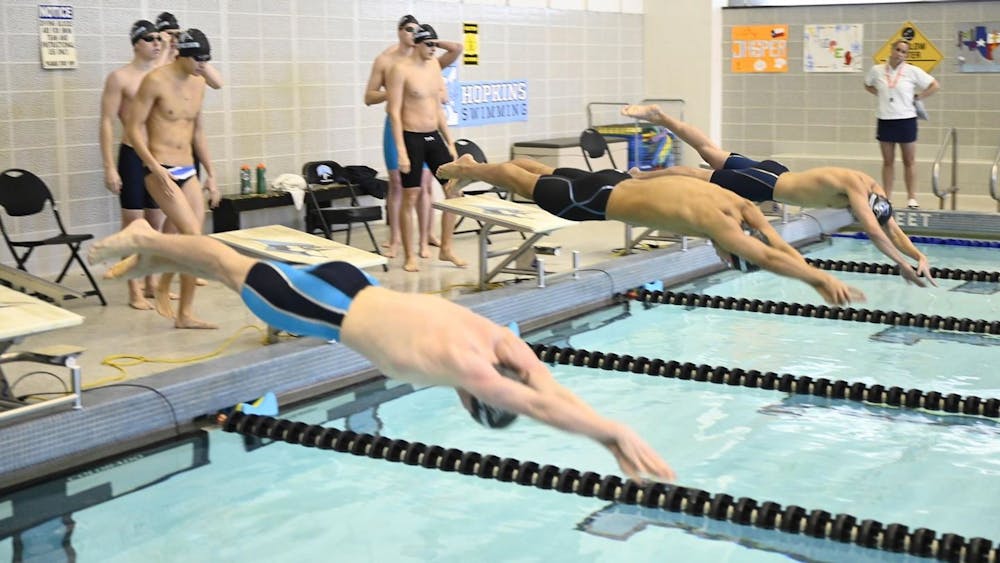
Hello, budget cuts; goodbye, college sports. Well, not all of them. Due to the impact of COVID-19, many universities have been experiencing financial problems. One solution that they have found is to cut or cancel sports programs — but only some of them.
Certain sports such as football and basketball generate more profits due to elements such as broadcasting rights, ticket sales and merchandise. The National Collegiate Athletic Association (NCAA) made $1 billion in revenue during the 2017-2018 basketball season. Around 70% of that revenue was generated from March Madness, the NCAA Division I Men’s Basketball Tournament. So the ones in trouble are non-revenue athletic programs, meaning there is no immediate revenue generated from spectators of the sport. Therefore, expenses are covered by sponsorships, donations and fundraising.
Stanford University is known for its enormous success in non-revenue sports, so it came as a shock when it decided to permanently cut 11 varsity programs after the 2020-2021 year, impacting more than 240 student-athletes and 22 coaches. The sports on the chopping block included fencing, field hockey, synchronized swimming, men’s volleyball and wrestling.
Smaller institutions that may not get as much money through donations or outside means have resorted to getting rid of their athletic programs as a whole. Sheridan College, Broward College and Gillette College have eliminated their entire Division I athletics programs.
Other non-revenue collegiate sports such as tennis, golf, gymnastics and track & field also faced season cancellations. Within all the athletic programs, aquatic programs have been hit hard. For instance, Hopkins and other high academic schools like Ivy League universities Harvard, Princeton and Brown canceled their men’s water polo season for the 2020 fall season.
In particular, the swim & dive programs have seen an unexpected number of canceled seasons from universities with high-ranking programs.
The New England Small College Athletic Conference contains some of the best swimming programs in Division-III and has recently canceled conference competition and national championships for the winter season. Because of this, many conference institutions have also canceled their swim & dive seasons. These schools include Williams College, who finished fourth at the 2019 NCAA Division-III Championship women’s meet, and Amherst College, who placed eighth in the same meet. For the men’s meet, both programs appeared in the top 10 with Williams at seventh and Amherst at ninth.
Dartmouth College announced the termination of its men’s and women’s swimming & diving programs to increase flexibility in admissions and budget. In an interview with Swimming World, Dartmouth swimming coach James Holder referred to the sudden decision as a surprise.
“Completely blindsided by this decision,” he said. “Not sure if the college understands all the swimming and diving brings to the college and the community at large. It is a very disappointing decision by Phil Hanlon and Harry Sheehy.”
William & Mary will also discontinue seven sports programs, swim & dive included, affecting 118 students and 13 coaches in exchange for saving $3.66 million.
It’s understandable that during the time of COVID-19, institutions have to monitor their budget very carefully, but some generous people are trying to help ease those financial burdens and keep non-revenue sports at the same time.
Alumni of Bowling Green State University rallied together and helped raise $1.5 million in only 18 days to revive a recently eliminated baseball program.
Unfortunately, a positive outcome isn’t always the case. The University of Iowa will discontinue four athletic programs including men’s gymnastics, men’s and women’s swimming & diving and men’s tennis at the end of the 2020-2021 season.
To save these programs, the Save Iowa Sports group launched a fundraising campaign, and in just under 24 hours, $1.6 million was pledged to the group. They have worked with financial advisors and lawyers about the legality of setting up a structure to help fund sports.
“We want to make sure that these sports are restored in the short term as we work on longer-term solutions for how to continue in perpetuity,” the group wrote. “This is what Hawkeyes do, we come together.”
Gary Barta, University of Iowa athletics director, has stated that no private funding would be accepted by the athletic department to reinstate the sports in question. Still, the group will continue to try and work with the university to give those athletic opportunities back to their students.
From the canceling of one season to the discontinuation of a program, the problems that arise go far beyond the institution and its students. The success of the United States at international sports competitions relies on college programs to help high school students develop into elite athletes. Specifically, the cancelation of sports is jeopardizing the dominance that the United States exhibits at the Olympics.
Olympians Erik and Kawika Shoji won bronze medals as part of the 2016 Rio Olympics men’s volleyball team. Stanford, where they played collegiately, just cut their men’s volleyball program. They as well as 27 other athletes who competed in Rio have ties to the university. In total they won 27 medals for the United States. Four of those medals were won by athletes from sports that were among the 11 that the university decided to discontinue.
As Greg Earhart, the executive director of the College Swimming & Diving Coaches Association of America, put it, “I don’t even want to imagine what it’s like without college sports. I don’t want to imagine what the United States looks like on a global scale without this.”
Given the effects on students, coaches and staff, universities that have canceled or cut programs should reconsider their decisions that may have detrimental effects in the long term. Especially for universities that do have the finances to continue their programs but chose not to. They should exhaust all other options such as reaching out to donors, engaging with alumni and fundraising before they take away staff members’ jobs and a student’s passions and dreams.





